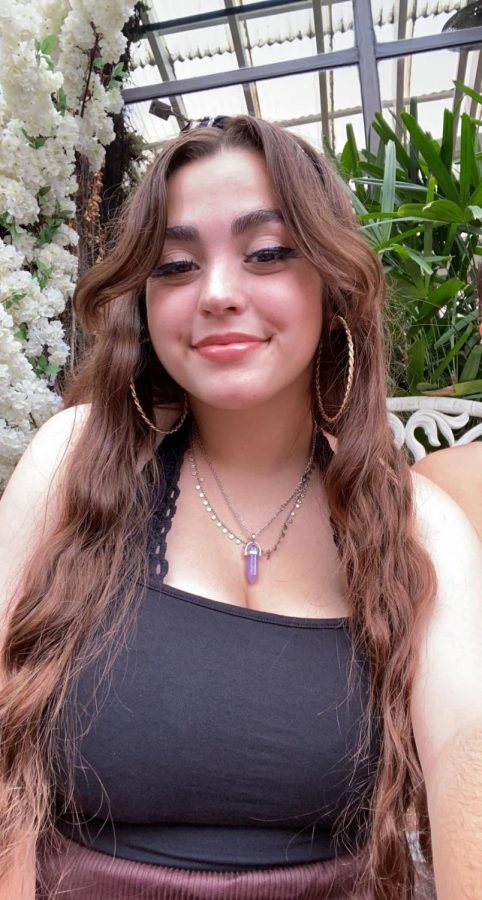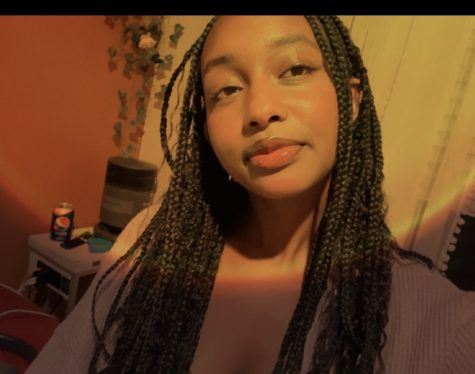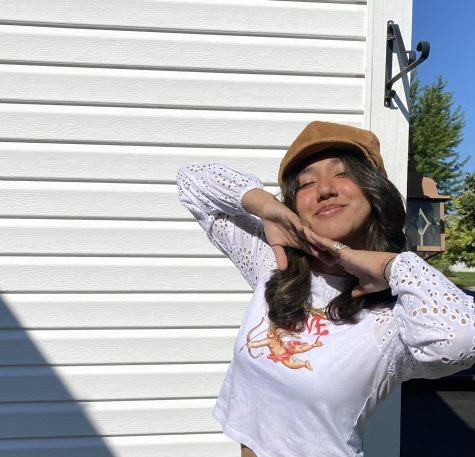Column: Let’s talk about it
Let’s talk about the multiracial experience
In the seventh grade, I was assigned to create a presentation about myself. It contained all the regular questions these types of assignments had, such as what my hobbies were, who I lived with, any pets I had, and other basic things. Yet one question grabbed my attention: how has your culture affected you? This stumped me. I remember looking at my computer screen and saying to my parents “it really hasn’t.” I never ended up putting a real answer in my presentation. It did not feel pleasant for me, but all I knew about my ethnicity was that my father was Mexican and my mom was European. I wonder often why I was so stressed and confused by what seems like such a simple question. What I realize now is that I did not feel comfortable enough to speak about culture. Growing up mixed race brings forth new challenges, and I find that assimilating into a certain group is incredibly difficult. I’m way too white for the Latino community, yet white people don’t understand certain areas of my life either. Dilemmas that arise from being mixed race in America are not widely spoken about, which leads many people to feel alone and discouraged from engaging with their cultures.
In my experience, I definitely had people in my life who wanted me to learn about my Mexican heritage. I have strong memories of my grandma bringing books in Spanish and trying to teach me basic sayings in Spanish as well. None of my immediate family can speak fluently, but she wanted me to learn the language so badly because she knew that the preservation of our family’s roots was so important. My freshman year of high school is when I began to learn Spanish on a more serious level. I enrolled in Spanish class and fell in love with not only the language, but the culture that came with it. The lessons came easily to me and the material seemed so familiar. From that point on, I devoted myself to experiencing a piece of my identity that I had been longing for my entire life.
However, nothing came easy to me. Sadly, I was met with backhanded remarks and discouraging words from many people. It feels strange to try to learn something about yourself and have so many people invalidate you. Suddenly I was “trying so hard to be Mexican,” and I was told by people that they just did not think of me as Mexican. Then what was I?
This concept of not knowing how to label yourself is not new at all. In an article by “Vox” magazine, they interview biracial people about their experiences and obstacles they have faced with having two cultures.
“Using the term ‘person of color’ to account for it feels strange, just given what I see when I look in the mirror. But I also feel a kind of obligation not to let the complex mix of identities I inherited from my mother disappear into the whiteness inherited from my father. I don’t really know where that leaves me, to be honest, beyond using broader terms like Latino, Colombian-American, white-passing, mixed, or multiracial,” said Michael Lahanas-Calderón in the article. Having so many people not take someone seriously as being of a certain ethnic community can confuse someone when they are trying to figure out where they stand. This left me wondering, am I deserving of this culture? I felt guilty, as if not being raised traditionally Mexican was my own doing.
The isolation from others and the judgment that a person feels from either side is depressing as well. I built up insecurities from my failed attempts to relate to others who were fully Mexican, and I felt ashamed when I took a seat at my school’s cultural club specifically for Latinos. Nobody there said anything harmful, but this feeling was an internalized guilt and embarrassment that made it hard for me to try new things.
Another article about the multicultural experience by “The Guardian” mentions the topic of isolation.
“There are times I feel like the odd one out, especially at family functions. You’ll see a sea of white faces, and then there’s me and my brother. It can be isolating; there aren’t many people I can relate to,” said Fintan O’Haire in the article.
What I wish I knew back then was that nobody’s approval is needed to get in touch with culture. I had my own personal experiences that made me connected to my ancestral roots.
How has culture shaped me? My family raised me with strong values and morals because they had to work hard to make it in this country. My great grandpa always played Latino music, so now I make sure to listen to banda and mariachi all the time. My family parties taught me how to dance and enjoy life. My culture connected me to my loved ones who have passed away, and it taught me the importance of remembrance. I could answer how culture has affected me now easily at this moment in time, but back then I was confused about my heritage. I am so proud to represent two cultures, but the journey to feel comfortable in my own skin was difficult and tedious. Being multicultural is something that can make people feel alone and confused. Remember to give people grace and be patient with others who are trying to connect with themselves.




